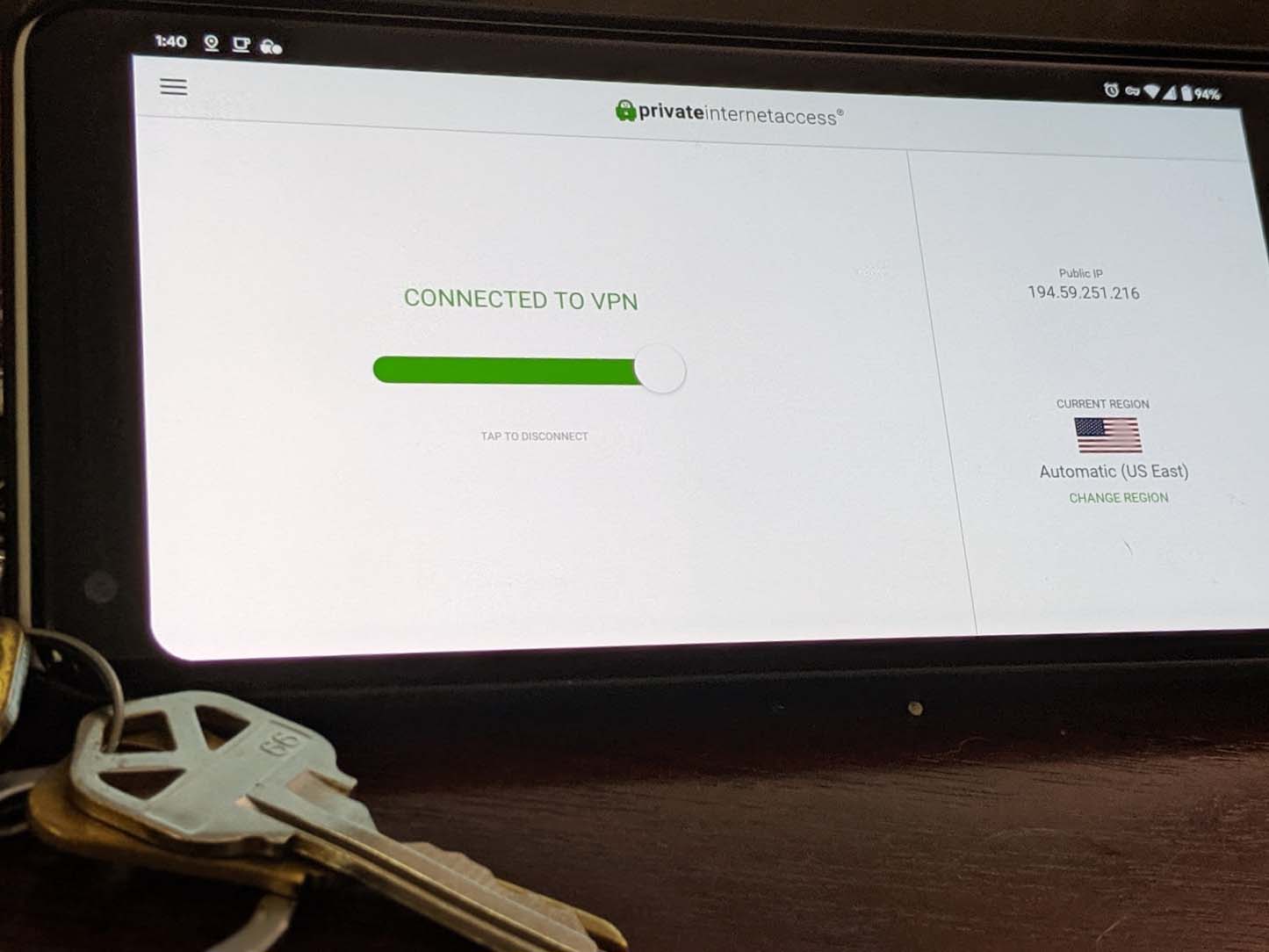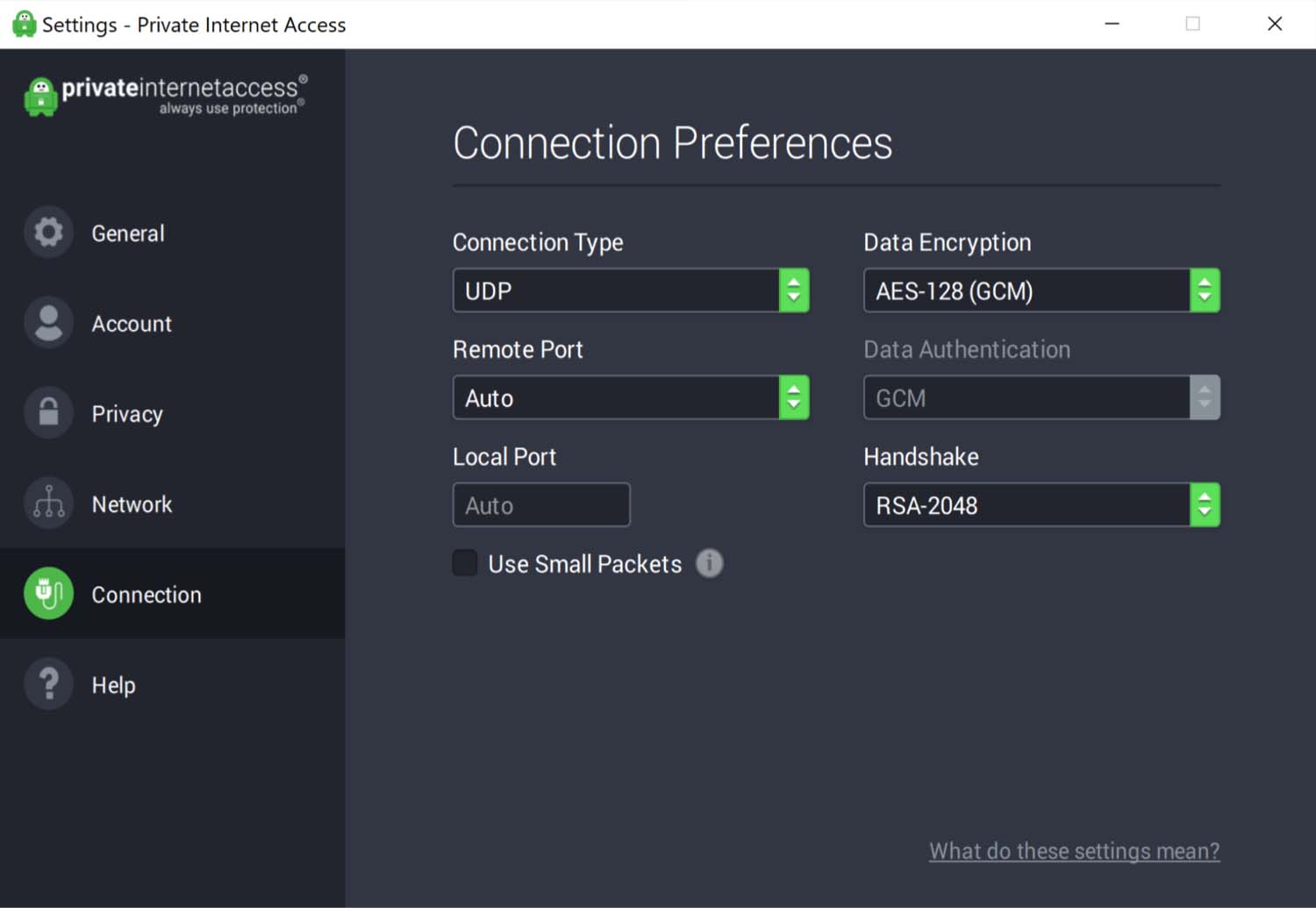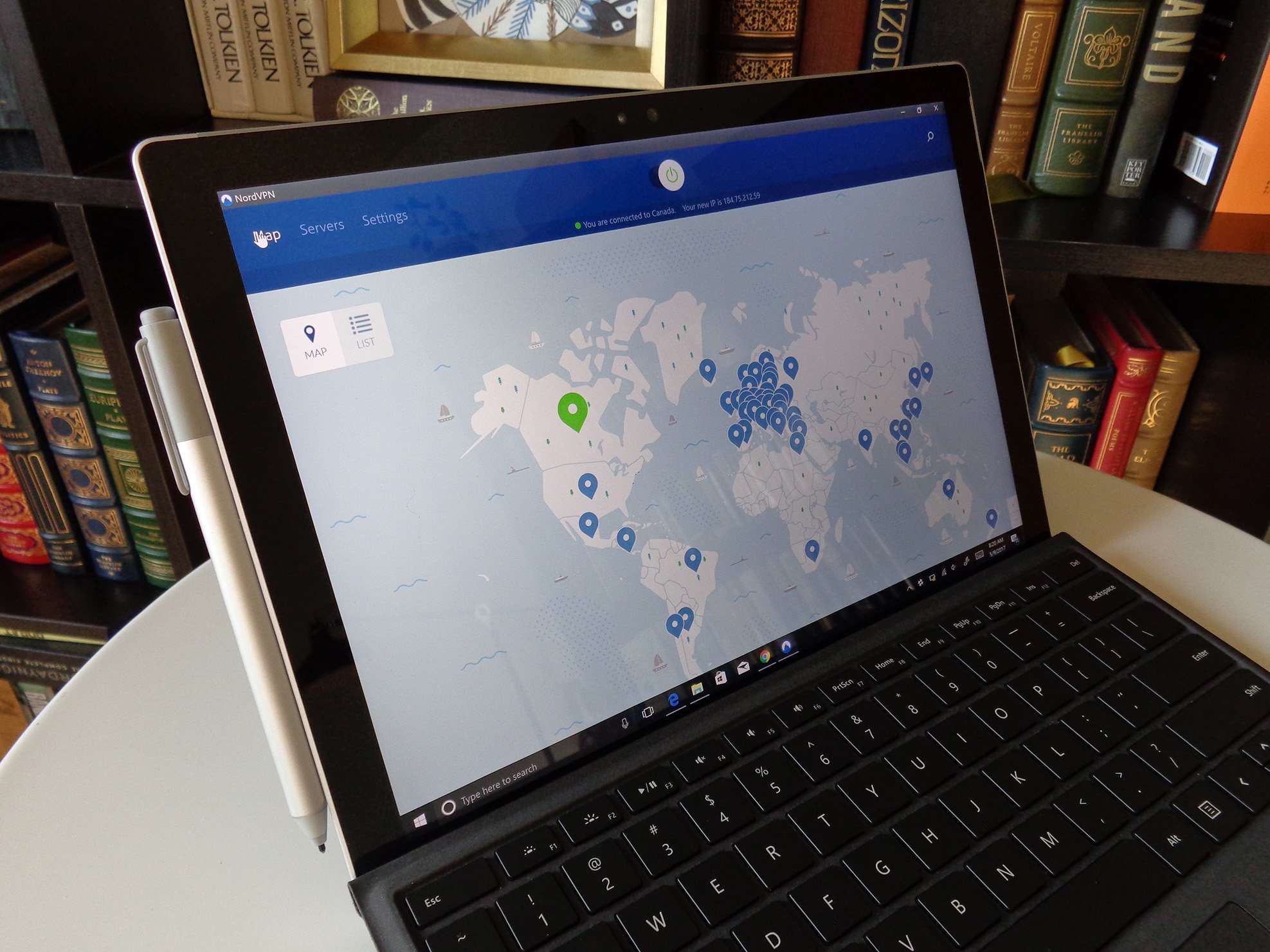
All the latest news, reviews, and guides for Windows and Xbox diehards.
You are now subscribed
Your newsletter sign-up was successful

More servers
NordVPN is a feature-rich service with thousands of servers in 60 countries offering excellent performance. It keeps minimal logs, it's based in Panama, and there are no bandwidth limits. However, simultaneous devices are capped at six, and you will ultimately pay more for NordVPN.
Pros
- 24/7 live chat support
- Long-term subscriptions available
- More servers in more countries
- Panama jurisdiction
- Strong performance, unlimited bandwidth
Cons
- Six simultaneous devices
- Similar subscriptions cost more than PIA

More simultaneous devices
Private Interenet Access VPN tops out at a one-year subscription, but it's significantly less expensive than a similar sub at NordVPN. You don't get as many servers in as many countries, but you will get 10 simultaneous devices to use and there are absolutely no logs kept.
Pros
- More affordable subscriptions
- Absolutely no logs kept
- 10 simultaneous devices
- Plenty of payment options
- Strong performance, unlimited bandwidth
Cons
- Maximum one-year subscription
- Email ticket support
- Fewer servers in fewer countries
These two VPN providers are some of the most popular around right now, both with a lot of servers in a lot of countries, no logs kept, unlimited bandwidth, multiple anonymous payment options, and strong performance. There are, however, some significant differences when you start digging down into the services.
NordVPN vs. PIA at a glance
Let's take a brief look at how these two VPN services compare on paper.
| Header Cell - Column 0 | NordVPN | Private Internet Access |
|---|---|---|
| Servers | 5,678 in 60 countries | 3,341 in 32 countries |
| Protocols | OpenVPN IKEv2/IPSec L2TP/IPSec SSTP PPTP | OpenVPN L2TP/IPSec PPTP |
| Jurisdiction | Panama | United States |
| Devices | 6 simultaneous | 10 simultaneous |
| Bandwidth cap | Unlimited | Unlimited |
| Logs | Almost none | None |
| Payment options | Credit card PaymentWall Cryptocurrency AliPay Cash | Credit card PayPal Cryptocurrency Gift cards PaymentWall OKPay |
| Support | 24/7 live chat |
NordVPN vs PIA servers and locations
Any VPN provider worth the money paid for a subscription should have many servers spread out across many countries. In NordVPN's case, it has 5,678 VPN servers in 60 countries, including Argentina, Brazil, Malaysia, Taiwan, Egypt, and Turkey, places where PIA lacks any support. With NordVPN, many of its servers are dedicated to P2P, are obfuscated for countries with restricted access, have a double VPN for double encryption, or work with Onion over VPN.
With PIA, you get access to 3,341 VPN and proxy servers spread out over 32 countries, and while you don't get as much variety as with Nord, all PIA servers can handle P2P sharing. However, you won't have access to a double VPN or Onion over VPN servers with PIA.
With both services, you're going to get unlimited bandwidth with no fear of overages or throttling, and you can switch between servers as much as you'd like to find one with optimal performance. Both services perform extremely well as long as you can find a nearby server, which for a lot of people might be easier with Nord.
As for security, NordVPN is using OpenVPN with a 256-bit AES encryption and 2048-bit Diffie-Hellman for key exchanges, while the IKEv2/IPSec protocol uses 256-bit AES with a 3072-bit Diffie-Hellman key. There are a few levels of OpenVPN security to choose from with PIA which does affect performance, including a standard 128-bit AES encryption with 2048-bit RSA handshake and 2048-bit Diffie-Hellman key, or a maximum-security option with 256-bit AES encryption with 4096-bit RSA handshake and 4096-bit Diffie-Hellman key.
What does this all mean? In either case, you can rely on strong encryption to keep your data and privacy safe when you're connected to a VPN server, although PIA is missing a couple features that Nord has.
NordVPN vs. PIA jurisdiction and log keeping
NordVPN is based in Panama where it has no legal obligation to collect any personal data, though it does keep some information for billing and operational purposes like email address, payment info, session timestamp, customer service information, and a record of you visiting the NordVPN website. You can set up a dummy email and pay with cryptocurrency to avoid some of these records, though there will be some metadata collected.

PIA, which is based in the U.S. and subject to its jurisdiction, keeps absolutely no logs of any kind, nor any information. Despite the discrepancy in the jurisdiction, PIA and NordVPN both do their utmost to keep any information out of the hands of anyone attempting to get a look inside, and you should feel assured that your actual browsing data isn't being recorded. Remember, this doesn't mean you're free to use a VPN for illegal activity.
Furthermore, NordVPN states in its warrant canary section that it has never been secretly pressured by a governmental entity with warrants or gag orders. PIA does not use a warrant canary, claiming it's best to just not log anything than alert people that there's been a breach.
NordVPN vs. PIA features and devices

Although you're ultimately going to pay more for a similar subscription to NordVPN, it brings a ton of features to the table. Alongside the dedicated servers for P2P sharing, double VPN, obfuscation, and Onion over VPN, you get a dedicated ad and malware blocker, DNS leak protection, SmartPlay for smoother video streaming, and an automatic kill switch that keeps your real identity from being seen if your connection to the VPN server happens to drop.
The NordVPN app works with Windows, Android, macOS, iOS, Android TV, Linux, Chrome, Firefox, and it can be used with a ton of routers. However, you can only use NordVPN on six simultaneous devices. If you run into any issues, customer support staff can be reached 24/7 with live chat.
PIA offers up an ad and malware blocker of its own, a killswitch, DNS leak protection, and even automatic port forwarding for P2P sharing, but it doesn't have the same specialized servers as Nord. Its app works with Windows, Linux, macOS, iOS, Android, and it can be configured in certain routers for broader coverage.
If you have a lot of devices, PIA offers 10 simultaneous connections, beating out six from NordVPN. If you run into trouble, you'll have to open an email support ticket; live chat is not available.
NordVPN vs. PIA pricing and payment options

VPN service prices often fluctuate with special deals and new terms, but as it stands now, PIA is going to ultimately cost less money, at least for a term of similar length. If you opt for a yearly plan with PIA, you'll pay $3.33 per month for a total of about $40 per year. You can also go with a monthly subscription at about $7 per month, or a six-month deal for about $6 per month or about $40 total.

NordVPN has the same monthly plan, but it costs about $12, which is $5 more than PIA. The one-year NordVPN plan costs about $7 per month or about $84 per year, essentially twice as much as the same length at PIA. However, NordVPN also offers two- and three-year subscription plans for further savings, though you will have to commit to three years if you want to pay about the same per month as PIA.
You're ultimately going to get a better deal with PIA, but if you'd rather only be billed once every two or three years, you'll have to instead go with NordVPN. As for trials to see if you actually want a VPN, PIA gives you seven days to test its service, while NordVPN gives you a full 30 days to get your money back if you don't like what it offers.
Go with NordVPN for more servers, lengthier subscriptions
NordVPN does cost more than PIA for similar subscription terms, but you can opt for a longer term that brings the monthly price down to about the same amount. With NordVPN, you get more servers (including specialized options) in more countries, and you can rest assured your data will remain safe thanks to strong encryption. As long as you don't want more than six devices in use simultaneously, it's no doubt the better option for more people.
PIA offers a more affordable service in fewer countries
PIA is a more affordable option than NordVPN, but it doesn't come with as many features or as many servers spread out across as many countries. It does have jurisdiction in the U.S. which might frighten some away, but rest assured you get strong encryption, fast speeds, and absolutely no logs kept. It's also a better choice if you want to connect more than six devices at once.

Pay less, use more devices
PIA is a VPN with speedy performance and no log keeping. It's affordable, it can be used on all major platforms, and you can have 10 devices connected at once. As long as you don't mind fewer servers in fewer countries and a lack of live support, it's still a strong option.
We test and review VPN services in the context of legal recreational uses. For example:
1. Accessing a service from another country (subject to the terms and conditions of that service).
2. Protecting your online security and strengthening your online privacy when abroad.
We do not support or condone the illegal or malicious use of VPN services. Consuming pirated content that is paid-for is neither endorsed nor approved by Future Publishing.
All the latest news, reviews, and guides for Windows and Xbox diehards.

Cale Hunt brings to Windows Central more than nine years of experience writing about laptops, PCs, accessories, games, and beyond. If it runs Windows or in some way complements the hardware, there’s a good chance he knows about it, has written about it, or is already busy testing it.

